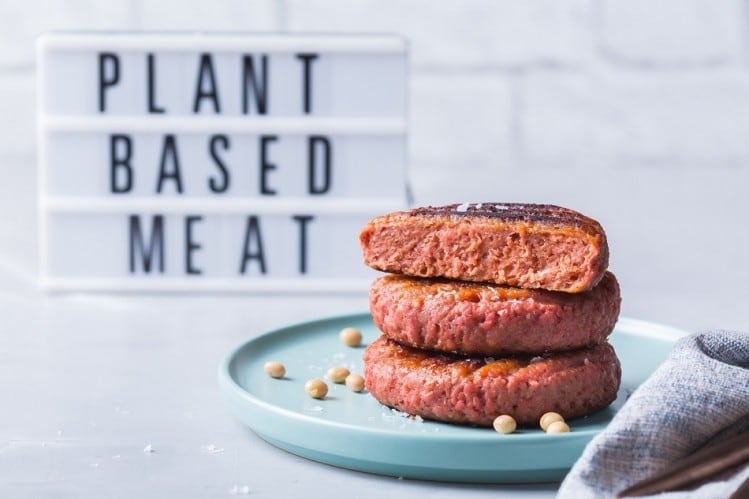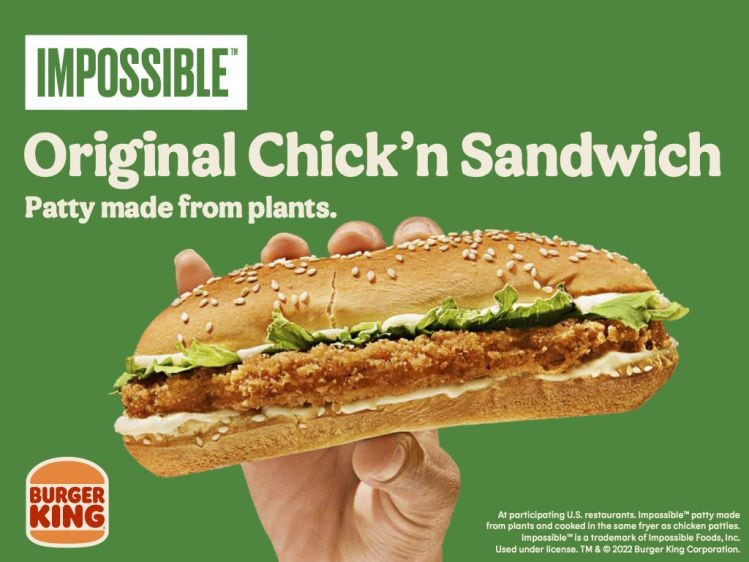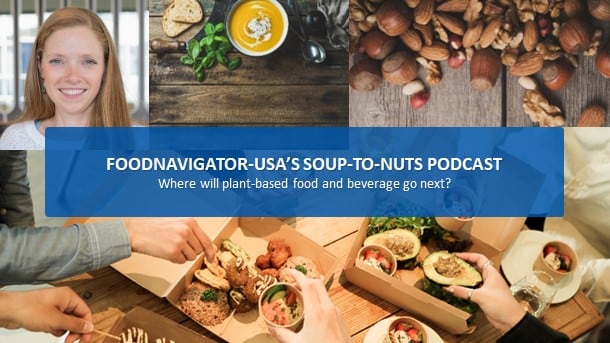For a time, it looked as if putting refrigerated products such as Beyond Burgers in the meat case next to conventional meat would be the key to unlocking exponential growth for meat alternatives by moving them out of the 'vegan/vegetarian' section at the far end of the frozen food aisle and putting them squarely in front of meat eaters.
Keen to be part of the trend, major meat companies, CPG giants, some legacy plant-based brands and a host of startups quickly jumped in with ready-to-cook burgers, sausages and ground beef alternatives.
Retailers, in turn, started to carve out space in their meat sets for plant-based items and introduced private label products to the set.
'Some retailers have started to move items that were in the meat case to the frozen food aisle'
However, sales of refrigerated meat alternatives have been going backwards since Q3, 2021, said 210 Analytics president Anne-Marie Roerink, who noted that, “Some retailers have started to move items that were in the meat case to the frozen food aisle.
“While refrigerated plant-based meat alternative buyers are spending a bit more," she said, "it is the drop in household penetration [from 11.2% in July 2021 to 9.4% in July 2022] that is driving the sales declines seen since the third quarter of 2021.”
July 2022 vs July 2021:
- Total meat alternatives: Dollars +7.6% to $120.2m, volumes -5.1%
- Refrigerated meat alternatives: Dollars -14.6% to $42.7m, volumes -15.3%
- Frozen meat alternatives: Dollars +9% to $77.5m, volumes -0.3%
- Conventional meat case (fresh raw meat such as chops, steaks, plus processed meat such as ham, bacon): Dollars +5.6% to $8.5bn, volumes -1.3%
Top-selling categories, refrigerated meat alternatives July 2022 vs July 2021:
- Refrigerated plant-based dinner sausages: Dollars -3.4% to $13.9m, volumes -15.4%
- Refrigerated plant-based patties: Dollars -32.5% to $9.2m, volumes -29.9%
- Refrigerated plant-based ground meat: Dollars -26.3% to $8.1m, volumes -25.4%
“Most refrigerated meat substitute forms were down year-on-year in both dollars and pounds,” said Roerink. “While a few of the newer, smaller forms grew, they were unable to offset the losses in the bigger forms.”
For the 52 weeks to July 31, 2022:
- Refrigerated meat alternatives: Dollars -8.4% to $446.8m, volumes -9%
- Conventional meat case (fresh raw meat such as chops, steaks, plus processed meat such as ham, bacon): Dollars +6.5% to $85.5bn, volumes -4.4%
- Frozen meat, poultry, seafood alternatives: Dollars +7.7% to $777.7m, volumes -2.7%
- Frozen conventional meat, poultry, seafood: Dollars +7.1% to $17.6bn, volumes -5.2%
The price gap between plant-based and conventional meat
While the price of conventional meat increased by 7% in July 2022 vs July 2021, and the price of refrigerated plant-based alternatives only rose 1% over the same period, the price gap between the two remains significant, with refrigerated meat clocking in at $8.11/lb compared to conventional meat at $4.56/lb, added Roerink.
Conventional meat: 'Strong July performance'
Dollar sales of (conventional) fresh meat were up +4% while volumes were flat at -0.4% in July 2022 vs July 2021.
Dollar sales of processed meats rose +8.8% while volumes were down -3.5%.
“The strong July performance is a continuation of a sales trend line that has moved volume closer to year ago levels for a while now," said Roerink. "The strong July performance was especially impressive as the average assortment was down 3.5% versus year ago and 6% versus 2019. That means fewer items have to work harder to achieve the same sales results and assortment optimization becomes more important.”
Maple Leaf Foods: Migrating capacity earmarked for plant protein back to traditional meat business
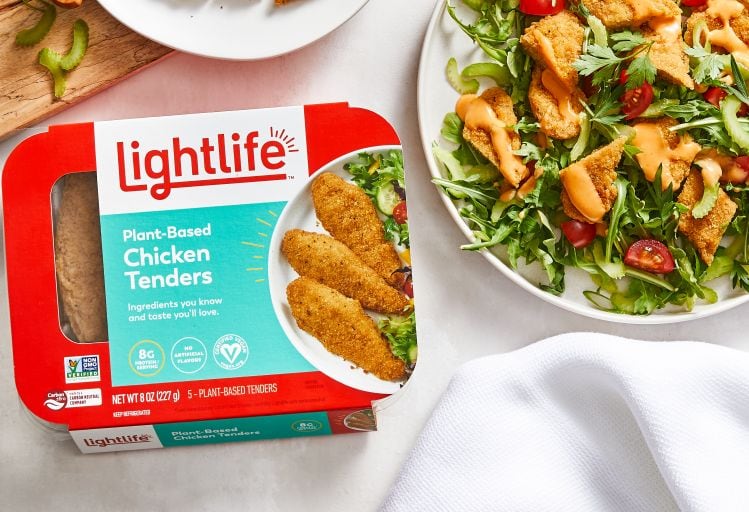
“We used to believe in a transformational category outcome” for meat alternatives, said Maple Leaf Foods’ CEO Michael McCain on his firm’s Q2 earnings call earlier this month after the plant protein business posted an -18.4% decline in sales to $40.8m.
“This did not materialize… and we no longer believe that it will materialize.”
This doesn’t mean the category is a dud, just that all those hockey-stick growth charts were way too ambitious, he said: “We feel along with others… that it will settle into a long-term growth rate of 10-15% particularly if supported by a robust innovation agenda.”
Maple Leaf – which owns the Lightlife Foods and Field Roast brands as part of its Greenleaf Foods division– is now “dialing back our investment to reflect the goal of profitable growth,” said McCain, who plans to migrate “some of the excess capacity we had been holding for Greenleaf to growth opportunities in the [conventional] meat business.
“So far, we’ve decreased advertising and promotional spend to match the projected category growth rates and have reduced the size of the Greenleaf organization by 25% already.”
Morningstar Farms: Problems with co-packer...'a short-term issue and we're working through it'
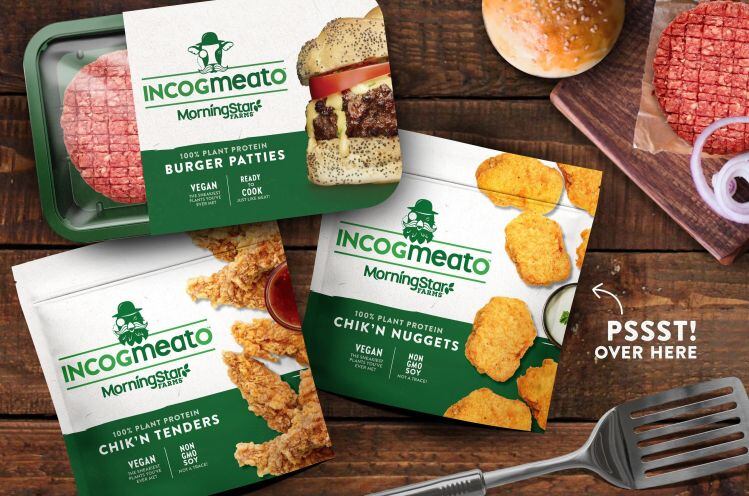
Speaking on Kellogg’s Q2 earnings call this month, CEO Steve Cahillane said the firm’s plant-based brand Morningstar Farms was “uncharacteristically down in net sales and consumption through the first half.”
Much of this had to do with “supply chain challenges, principally with a co-manufacturer, which led us to reducing our commercial activities,” he said.
'Tremendous growth prospects'
“This is a short-term issue and we're working through it. And we have strong plans for the second half as we resume commercial activity. Nevertheless, this is a leader in plant-based foods, a category with tremendous growth prospects. This is a business that remains in good condition from the standpoint of brand equity, marketing and innovation pipeline as well as profitability.”

